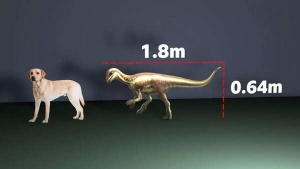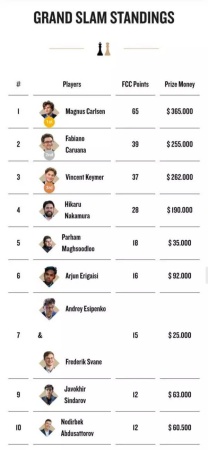The recent, sudden death of actress and model Shefali Jariwala, best known for her appearance in the early 2000s hit song "Kaanta Laga," has sent shockwaves through the entertainment industry. Reports indicate that she suffered a sudden cardiac arrest on the night of June 27th and was pronounced dead at a Mumbai hospital. She was only 42 years old.
While the precise cause of death is still to be determined, this tragedy underscores the importance of understanding the potential warning signs of sudden cardiac arrest, a condition that can strike individuals of any age, regardless of pre-existing health issues. The body often provides subtle clues that, if recognized and addressed promptly, could be life-saving.
Here are five frequently overlooked warning signs of sudden cardiac arrest:
While tiredness is a common human experience, unexplained fatigue that deviates significantly from the norm warrants attention. This isn't simply feeling sleepy after a long day; it's a persistent, draining exhaustion that doesn't improve with rest.

The American Heart Association identifies unexplained fatigue as a potential early symptom of heart problems, particularly in women. Many individuals who have experienced cardiac arrest have reported a profound sense of fatigue in the days or weeks leading up to the event. This fatigue might manifest as an unusual sluggishness, even when performing simple tasks like walking or climbing stairs. It's crucial to distinguish this from typical tiredness and seek medical advice if you experience this symptom.
Contrary to popular belief, cardiac events don't always begin with sharp chest pain. Often, the initial symptom is a subtle sensation of tightness, fullness, or an unidentifiable discomfort in the chest.
This is particularly common in women and individuals under 50, where symptoms can differ from the classic chest-clutching portrayal. Some describe it as a heavy weight pressing down on the chest or a constricting sensation, like a tightening belt. Such sensations should not be dismissed as mere gas, muscle strain, or stress. If the feeling arises suddenly or intensifies with exertion, it could indicate that the heart isn't receiving adequate oxygen, a precursor to cardiac arrest.
A rapid heartbeat following exercise or stress is normal. However, if your heart starts beating unusually fast, too slow, or with skipped beats without an obvious trigger, it's essential to get it checked out.

This condition, known as arrhythmia, is frequently observed in individuals before they experience cardiac arrest. It can manifest as palpitations, a fluttering or pounding sensation in the chest. In some instances, it might be silent and only detectable through medical tests. These rhythm changes are particularly concerning if they occur during rest or sleep, or if they're accompanied by dizziness or shortness of breath. This suggests a malfunction in the heart's electrical signals, a significant risk factor for cardiac arrest.
Breathlessness isn't always related to lung problems. In many cardiac cases, particularly leading up to a sudden cardiac arrest, individuals experience a peculiar breathlessness that feels disproportionate to their activity level.
This can occur even while sitting or performing light tasks. It may feel like an inability to fully "catch" your breath, despite your lungs appearing healthy. Some individuals also experience mild chest discomfort or light-headedness. This symptom arises because the heart's inability to pump efficiently leads to a drop in oxygen supply, causing breathing difficulties. This symptom may appear days before a major cardiac event.
While dizziness can stem from various benign causes, sudden, unexplained dizziness, especially when accompanied by nausea, sweating, or paleness, should not be ignored.
Cardiac arrest often results in reduced blood flow to the brain. When the heart's pumping action is compromised, the brain quickly detects the deficit, leading to dizziness, confusion, or even temporary blackouts. Many cardiac arrest survivors report experiencing fainting spells or feeling faint in the days prior to the event but didn't associate it with their heart. These episodes can serve as critical warning signs.
Newer articles
Older articles
 Hetmyer's Heroics: Orcas Stun MI New York with Last-Ball Six in Record-Breaking MLC Chase
Hetmyer's Heroics: Orcas Stun MI New York with Last-Ball Six in Record-Breaking MLC Chase
 Android Users Face Critical Security Risks: Update Your Devices Now, Warns Government Agency
Android Users Face Critical Security Risks: Update Your Devices Now, Warns Government Agency
 Greg Chappell Hails Rishabh Pant's "Revolutionary" Batting, Likens Him to Gilchrist
Greg Chappell Hails Rishabh Pant's "Revolutionary" Batting, Likens Him to Gilchrist
 Dog-Sized Dinosaur Fossil Unearths New Insights into Prehistoric Life Alongside Giants
Dog-Sized Dinosaur Fossil Unearths New Insights into Prehistoric Life Alongside Giants
 West Indies Captain Chase Slams Umpiring After Test Loss, Demands Accountability
West Indies Captain Chase Slams Umpiring After Test Loss, Demands Accountability
 IRCTC's AI Chatbot, AskDisha 2.0, Streamlines Train Ticket Booking, Refunds & Information
IRCTC's AI Chatbot, AskDisha 2.0, Streamlines Train Ticket Booking, Refunds & Information
 Freestyle Chess India Event Scrapped Due to Sponsorship Issues; Carlsen Absence Confirmed
Freestyle Chess India Event Scrapped Due to Sponsorship Issues; Carlsen Absence Confirmed
 Moto G54 Gets Significant Price Drop in India: Check Out the New Affordable Price Tag
Moto G54 Gets Significant Price Drop in India: Check Out the New Affordable Price Tag
 New Zealand Cricket Announces Packed 2025-26 Home Schedule Featuring Australia, England, West Indies & South Africa
New Zealand Cricket Announces Packed 2025-26 Home Schedule Featuring Australia, England, West Indies & South Africa
 Converting JPG to PDF: A Comprehensive Guide for Preserving Image Quality and Ensuring Accessibility
Converting JPG to PDF: A Comprehensive Guide for Preserving Image Quality and Ensuring Accessibility